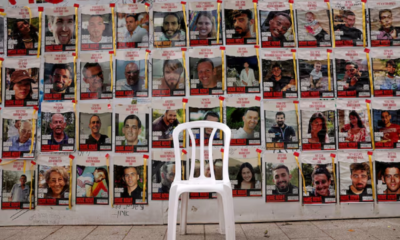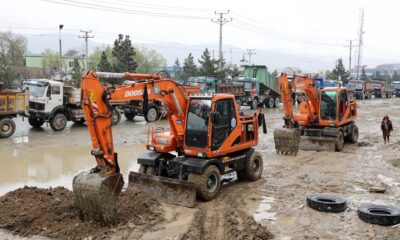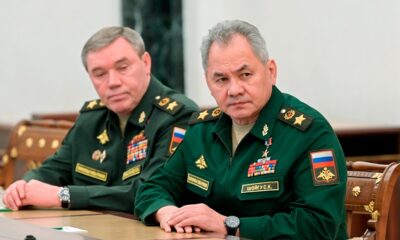Latest News
Pakistan ‘does not want armed conflict with Afghanistan’
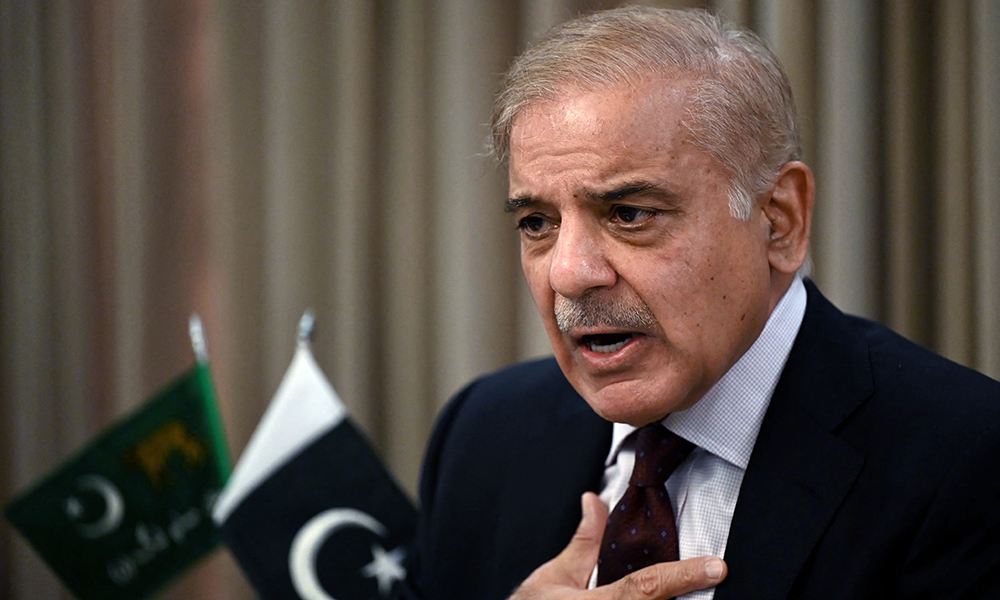
Following Pakistan’s airstrikes in Paktika and Khost provinces on Monday, Pakistan’s Prime Minister Shehbaz Sharif said Islamabad will not tolerate any form of cross border terrorism.
He said during a cabinet meeting on Wednesday: “We will not tolerate any form of terrorism from across the borders under any circumstances.”
Sharif emphasized that Pakistan’s borders are a red line against terrorism and that “terrorism must be eradicated.”
In the past year, Pakistan has consistently accused the Islamic Emirate of Afghanistan (IEA) of supporting terrorist groups such as the Tehreek- e-Taliban Pakistan (TTP) and has repeatedly urged the IEA to take serious action against this group and hand over its leaders to Pakistan.
However, the IEA has consistently denied Pakistan’s allegations.
Pakistan’s Defense Minister Khawaja Asif meanwhile says his country does not want to engage in an armed conflict with Afghanistan.
“Force is the last resort. We do not want to have an armed conflict with Afghanistan,” Asif said, speaking exclusively to VOA.
However, he warned that Islamabad could block the corridor it provides to landlocked Afghanistan for trade with India, saying Pakistan has the right to stop facilitating Kabul if it fails to curb anti-Pakistan terrorists operating on Afghan soil, VOA reported.
“If Afghanistan treats us like an enemy, then why should we give them a trade corridor?” he said.
This comes after Monday’s airstrikes against alleged militant hideouts in Paktika and Khost provinces in Afghanistan following an insurgent attack by Tehreek-e-Taliban (TTP) in Pakistan’s Waziristan on Saturday.
Pakistan claims Afghanistan’s leaders are not cracking down on TTP in the country – a claim the IEA rejects.
Five women and three children were killed in Monday’s airstrikes. IEA spokesperson Zabihullah Mujahid meanwhile warned of serious consequences earlier this week.
“Pakistan should not blame Afghanistan for the lack of control, incompetence and problems in its own territory. Such incidents can have very bad consequences, which will be out of Pakistan’s control,” Mujahid said in a statement.
Following the airstrikes, security forces along the Durand Line retaliated and targeted Pakistani military posts with “heavy weapons.”
Since Tuesday, a tense calm has prevailed along the 2,600-kilometer-long border.
Experts meanwhile say that while the IEA does not have the military might to attack Pakistan, the Islamic Emirate could use unconventional means, including actively supporting anti-Pakistan militants, to respond if aggression from Islamabad grows.
“If they can harm us, then we’ll be forced to [retaliate],” Asif said, while expressing hope that Afghanistan would meet the “single demand” of reining in TTP, preventing the need for future military strikes from Pakistan.
Reacting to Monday’s strikes, the U.S. State Department urged Pakistan and Afghan Taliban to take steps to address differences.
“We urge the Taliban to ensure that terrorist attacks are not launched from Afghan soil, and we urge Pakistan to exercise restraint and ensure civilians are not harmed in their counterterrorism efforts,” deputy spokesperson Vedant Patel told the media during a regular press briefing Monday.
Meanwhile, former Pakistani information minister Jan Achakzai warns that if the IEA keeps attacking Pakistan, Islamabad may seize the “Wakhan corridor.”
Achakzai wrote on his social media platform X on Wednesday that Pakistan would swiftly enter Afghanistan and annex the Wakhan corridor to gain access to the Central Asian countries.
The Wakhan Corridor is a narrow strip of land in northeastern Afghanistan, extending between Tajikistan, Pakistan, and China. It serves as a buffer zone between Afghanistan and its neighbors.
The Wakhan Corridor has historically been a significant trade route connecting Central Asia with South Asia and the Middle East. It played a crucial role in the ancient Silk Road network.
Latest News
Three road construction projects launched in Kabul
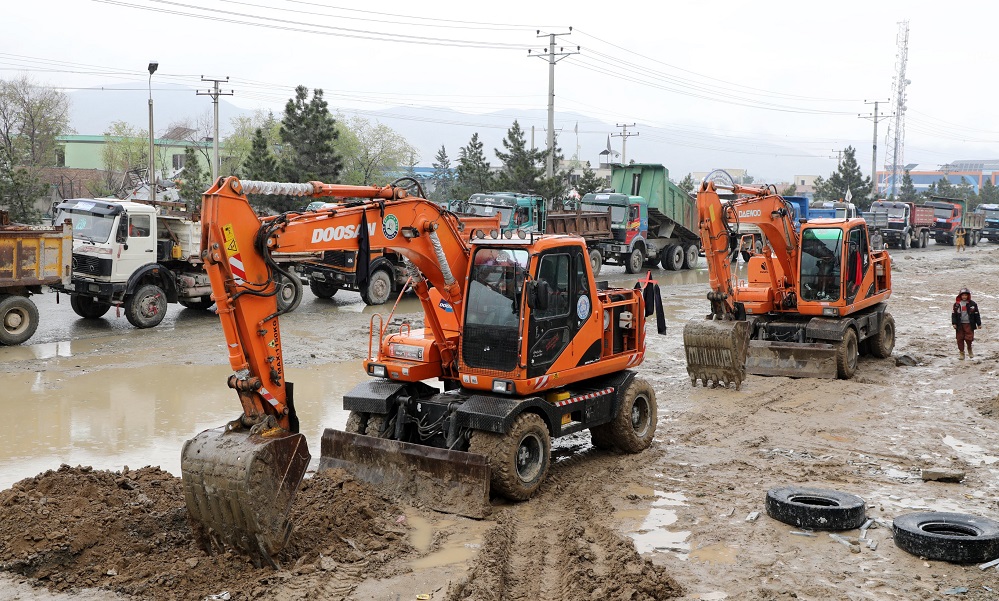
Three road construction projects worth about one billion Afghanis started in capital Kabul on Saturday.
The projects were inaugurated by Deputy Prime Minister for Economic Affairs Mullah Abdul Ghani Baradar.
The projects are: the second phase of Kotal Khairkhane road, the first part of the Shahid square to Qasaba, and the Airport road to Gumruk.
In the inauguration ceremony, Mullah Baradar said that Kabul municipality is working hard to beautify and regulate the city, and people should cooperate with the government in protecting public benefit projects.
He directed the officials of Kabul municipality to complete the mentioned projects on time and with good quality.
The second phase of Kotel Khairkhaneh road is 2.5 kilometers long and 60 meters wide. Thie road will cost 364 million Afghanis and will be completed in 20 months.
The Shahid square-Qasaba road is 1.8 kilometers long and 45 meters wide, which will be built at a cost of 175 million Afghanis in one year.
The Airport-Gumruk road is 2.7 km long and 60 meters wide, which will be completed at a cost of 407 million Afghanis in 20 months.
The projects are funded by Kabul Municipality.
Latest News
Russian defense minister says main threat for SCO countries emanates from Afghanistan
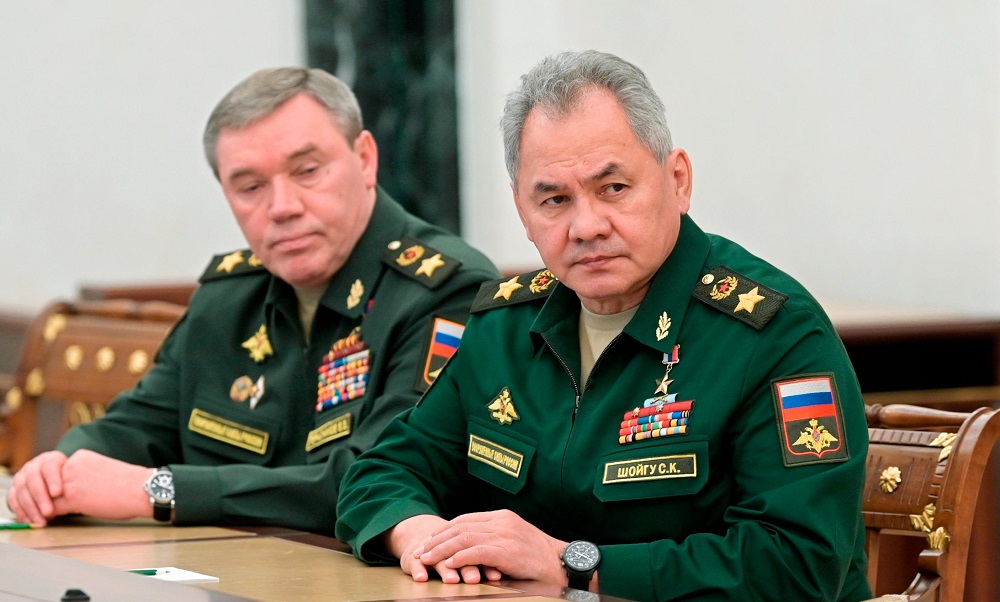
Russian Defense Minister Sergey Shoygu said on Friday that the main threat for the Shanghai Cooperation Organization (SCO) members emanates from Afghanistan where international terrorist groups find shelter due to unstable and indefinite political situation.
Speaking at a meeting of the SCO defense ministers in Kazakhstan’s capital Astana, Shoygu said Washington has stepped up efforts to restore its positions in Central and South Asia that were lost after the withdrawal of coalition troops from Afghanistan, Anadolu Agency reported.
The military chief called “unacceptable” the deployment of the American military infrastructure in the region, arguing that intentions should be regarded as “a direct threat to stability in the SCO space.”
According to him, the US is trying to impose a new security system in the Asia-Pacific region for dominance.
This comes as the Islamic Emirate has repeatedly emphasized that it does not allow anyone to pose threats to any other country from Afghanistan soil.
Recently, Mohammad Yaqub Mujahid, Acting Minister of National Defense Mohammad Yaqub Mujahid said that no destructive groups including Daesh have physical presence in Afghanistan,
Latest News
IEA calls Mujahideen Victory Day ‘freedom day’

In a statement on the occasion of the 32nd anniversary of the victory of the Mujahideen against the then communist government, the Islamic Emirate said that it is a day of freedom of the Afghan nation.
The Islamic Emirate described the coup by People’s Democratic Party of Afghanistan on 27th April 1978 as a dark day in history, as a result of which the people of Afghanistan suffered severe human and financial losses.
The statement said that the Afghan nation suffered huge casualties in their 14-year struggle against the thoughts and actions of the communists, as 1.5 million people died and millions more faced various hardships.
“After 20 years of Jihad, our country was freed from another occupation and the Islamic system was established, so the Islamic Emirate will make its utmost efforts so that the fruits of decades of sacrifice and struggle of this nation are not wasted,” the statement said.
“It was the wish of the martyrs to fully implement the Islamic system in the country, and therefore, the Islamic Emirate is trying to facilitate development and prosperity under the shadow of the Islamic system in order to realize the goals of the Afghan people’s jihads,” it added.
-

 Latest News4 days ago
Latest News4 days agoRashid Khan named AWCC’s brand ambassador
-

 World4 days ago
World4 days agoMalaysian navy helicopters collide in mid-air, 10 killed
-

 Sport4 days ago
Sport4 days agoJaiswal ton powers Rajasthan to big IPL win
-

 World4 days ago
World4 days agoNorth Korea officials visit Iran in a rare public trip
-

 Latest News5 days ago
Latest News5 days agoAt least 1,500 families affected by recent floods: IRW
-

 Sport5 days ago
Sport5 days agoMawj Sahil player scores stunning halfway line goal in 1-0 win over Jawanan Wahedi
-

 Sport3 days ago
Sport3 days ago‘Serious talent’ Fraser-McGurk bonds with Warner to light up IPL
-

 Latest News4 days ago
Latest News4 days agoUS report cites ‘significant deterioration’ in Afghan women’s rights last year




